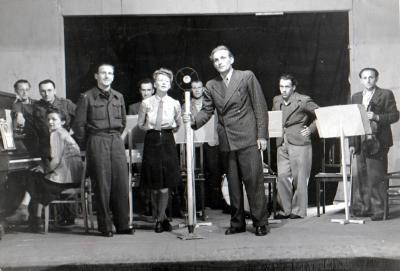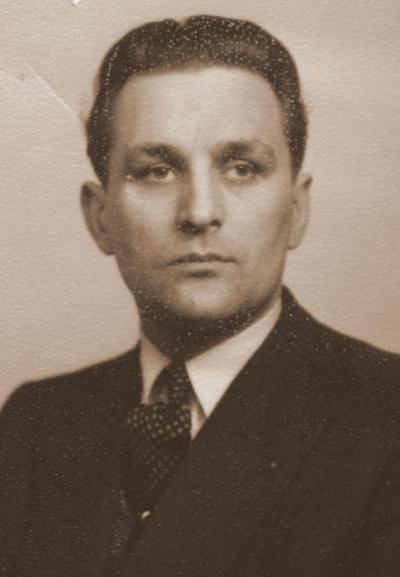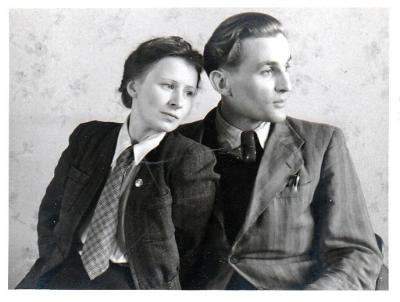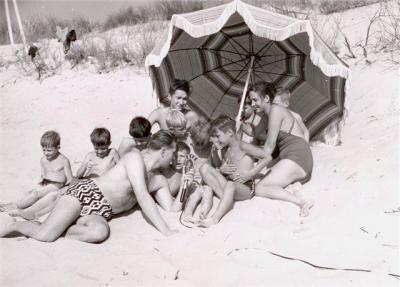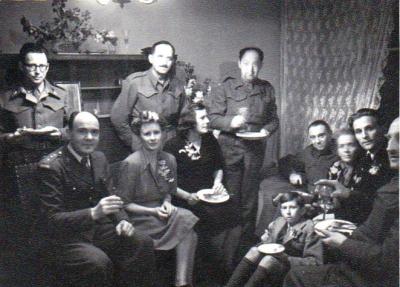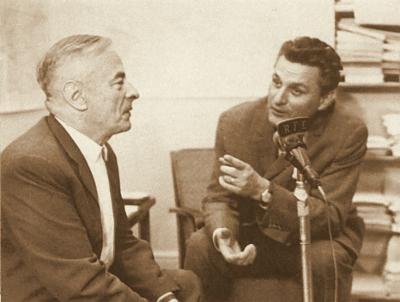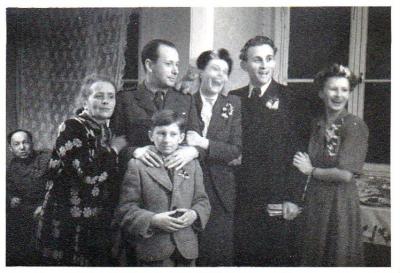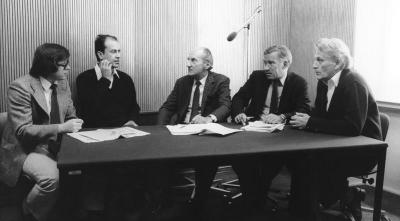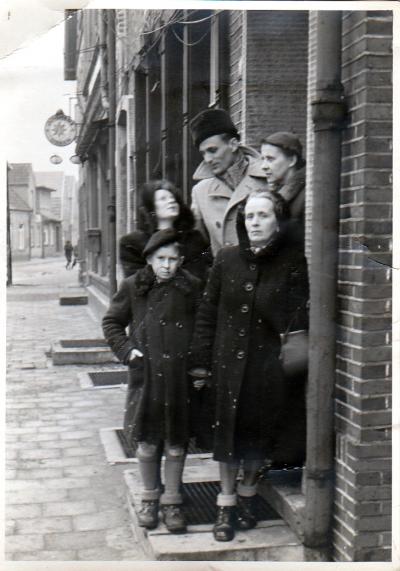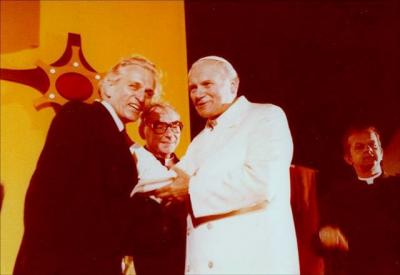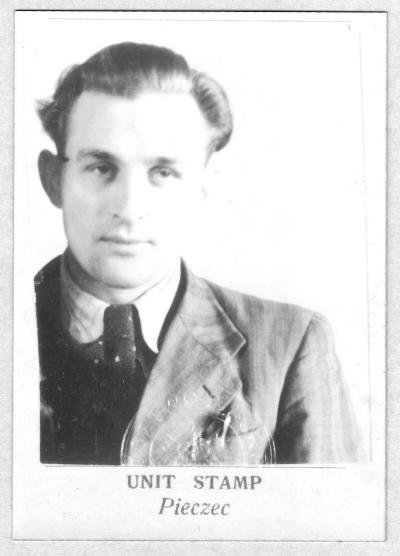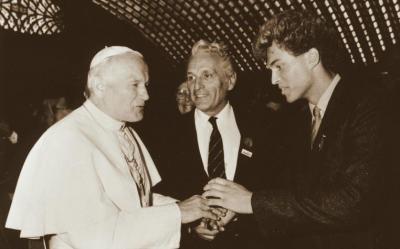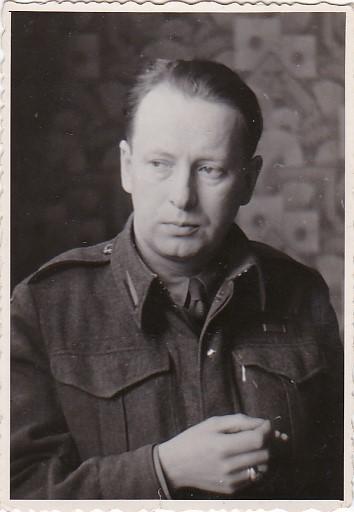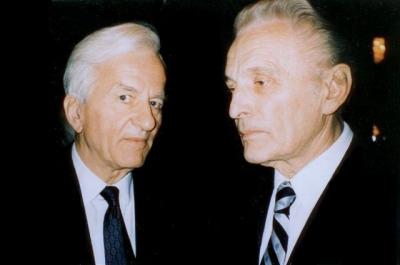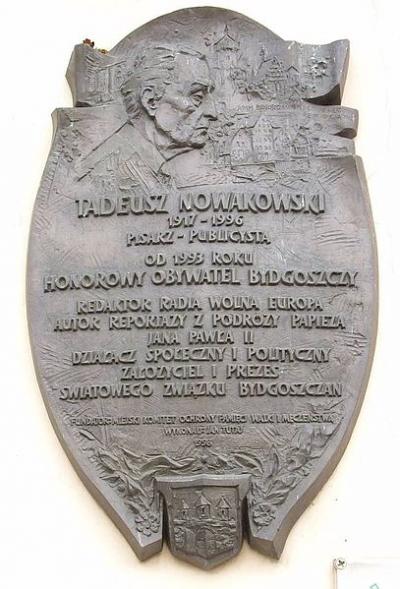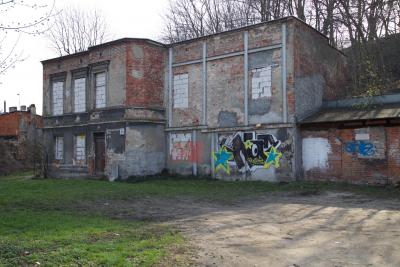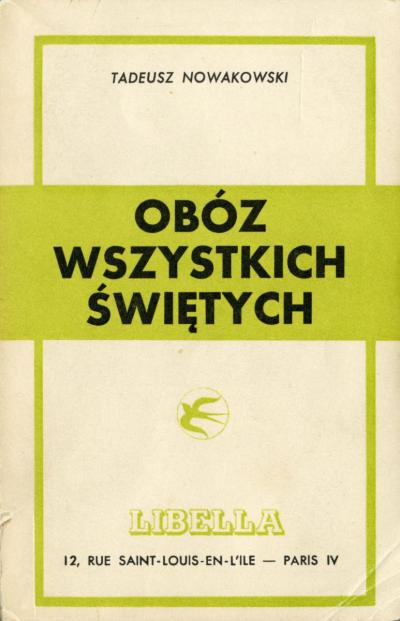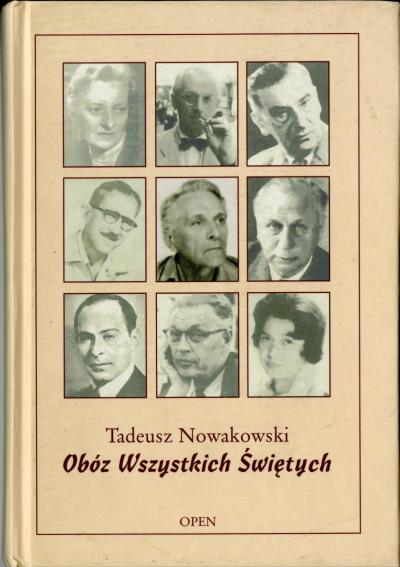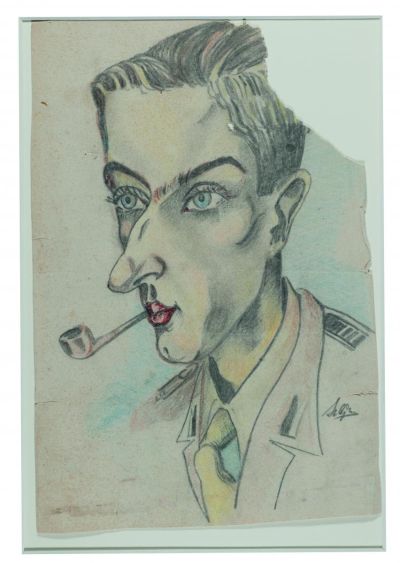Tadeusz Nowakowski

Tadeusz Nowakowski was born in Olsztyn in North-East Poland on 8th November 1917. His parents were Stanisław Nowakowski and Emilia Górka. Stanisław was a historian, journalist and Polish activist in the battle for independence in Warmia, a region in Northern Poland. When Warmia fell to Germany after a referendum in 1920, the family was forced to leave Olsztyn and moved to Bydgoszcz in the newly reborn Poland. Here Stanisław Nowakowski found a job as an editor with the local newspaper “Dziennik Bydgoski” (The Bydgoszcz Daily).
Tadeusz spent his childhood and youth in Bydgoszcz, which he regarded as his home town for the rest of his life. Here he visited the primary school and here he passed his A-levels at the public humanist Marschal-Rydz-Śmigły grammar school (Państwowe Gimnazjum im. Marszałka Śmigłego-Rydza). There he was the editor of the school paper “Ogniwa” (Connections), in which he also published his first early work. He also wrote poems and articles on the arts for the Bydgoszcz Daily, and worked as an editor on a programme for Boy Scouts at the newly founded studio of the Polish radio in Bydgoszcz. In 1936 he began a course in Polish at Warsaw University, which was named after Józef Piłsudski at the time.
After the outbreak of war he joined the Warsaw Defence Voluntary Workers’ Brigade (Ochotnicza Robotnicza Brygada Obrony Warszawy), a Civil Defence unit set up by the Polish Socialist Party (Polska Partia Socjalistyczna). He was never officially called up because he was considered unfit for military duty on the grounds of his diabetes and a visual impairment. At the end of 1939 he managed to get to Włocławek, where his mother and sisters had moved after their father had been arrested in Bydgoszcz and deported to the concentration camp there (Stanisław Nowakowski died in Dachau in 1942).
In December 1940 Tadeusz Nowakowski was arrested and accused of distributing leaflets and leading an underground newspaper. He was tried and sentenced to death on the grounds that he had led resistance activities to promote “the separation of Greater Poland from the Third Reich”. But since his German was excellent, he entered a formal appeal on the grounds that his public defenders, local “volksdeutsche” were only capable of passively understanding the German language and could only partially speak it. Hence this made it impossible for him to have an appropriate and orderly defence. The court allowed his appeal and “pardoned” Nowakowski, by commuting the death sentence to 30 years imprisonment in a concentration camp.
